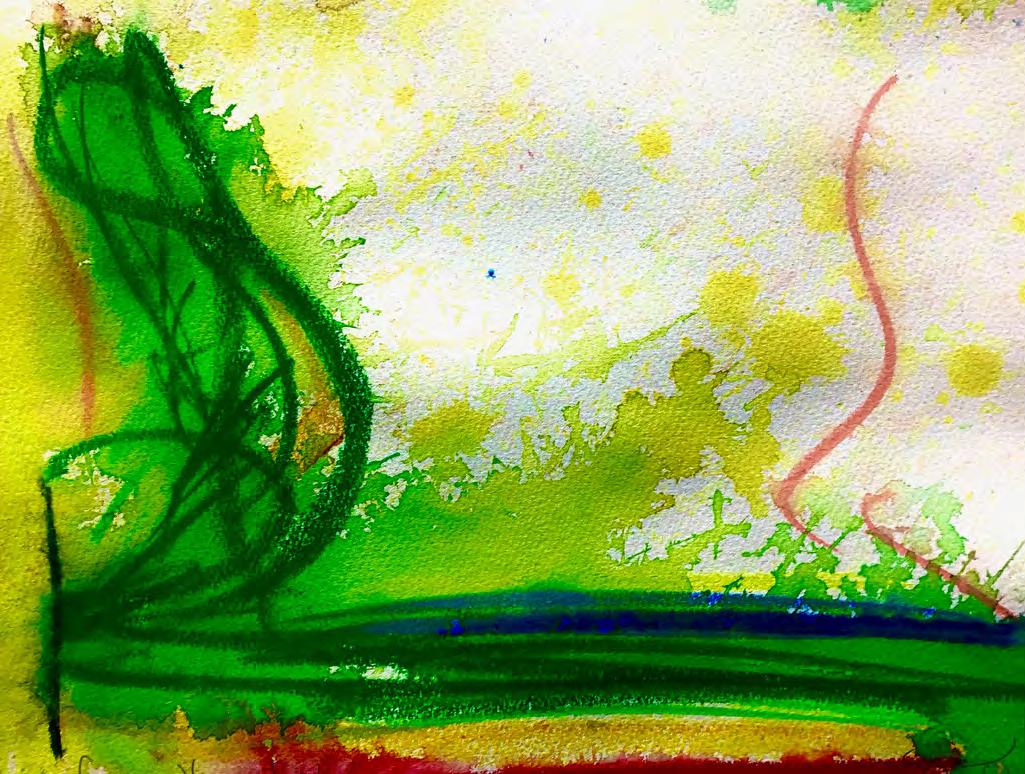Locked Down versus Locked In Mr T A Kiggell (CR, Modern Languages Department) Lockdown is hard. Time runs differently. You are less free. The sights & sounds that kept your intellect and your imagination ticking over are gone. Claustrophobia sets in, an ennui takes hold. With less human company, less human contact, you feel, well, less human. And simmering underneath is the injustice of it all: what did you do wrong to have to live like this? Dealing with this poses a challenge to everyone, especially those of us who have chosen to live and work in an environment which places such an emphasis on community. If you’re finding it hard to be locked down, just give thanks you’re not locked in. Locked-in Syndrome was the condition that struck Jean-Dominique Bauby out of the blue in December 1995. He was a happy and successful man with two children and a glamorous life as editor-in chief of Elle magazine. At the age of 43, however, with no hint of warning and nothing to cause concern in his medical history, he suffered a gigantic seizure. When he came out of his coma 20 days later, he found himself unable to feel or move his arms, his legs or his mouth, though his mind was unaffected. Physically, he was trapped, paralyzed – except for a bit of movement in his neck and the ability to blink one eye. But his mind was intact, his intelligence and his imagination were undimmed and free to fly. It is hard to imagine the acute torture that this must have been for Bauby. Here was a man of dynamism and panache who savoured the good things in life. He enjoyed a rich inner life as well as a busy, vivid and successful professional existence. All the pleasures he had enjoyed were now, through no fault of his own, out of reach. Fear, loss, injustice, despair, resentment – all these emotions and more must have assaulted him daily as he surveyed his past and present life. Bauby’s response was remarkable. He decided to write his memoir, dictated by blinking. He lay awake composing each sentence in his head, then each paragraph, then each chapter; when the therapist arrived, she would transcribe his text. It was, as you can imagine, painstakingly slow; but the result is a frank, painful, funny and moving read. He addresses his loved ones, remembers his parents, describes intense sensations, memorable meals; he recalls spectacular outings and professional disasters. He gives us the grisly routine of those in a hospital bed with a tube in their throat. As he considers his fellow patients, his visitors, parenthood, work, love, God . . . his text is rich with references and allusions – to mythology, significant places, historical figures, books, philosophers, musicians – the rich inner life of an intelligent and cultured man. Reading the tale of his day at the races when he failed to get to the bookie in time with his mates’ pile of money, only to see the horse romp home, you howl with laughter. When he describes watching his children on their Father’s Day visit, running around his wheelchair on the beach in the sun, you feel his pain. To write beautifully, movingly, wittily… this is a feat in itself. To compose it all in his head, sentence by sentence, and hold it in his memory, and dictate it the way he did – what an inspiration! Those who feel that the coronavirus lockdown is eroding their humanity can and must be strengthened by Bauby’s feat. Denied so much of what made him human, he nonetheless achieved an almost superhuman feat. Here we are with more time on our hands than we are usually granted, and yet often it feels like a burden; Jean-Dominique Bauby, also granted all the time in the world, but unable to do anything with it except think, turned this into a blessing. Perhaps, if we have the imagination, so can we?
84






































